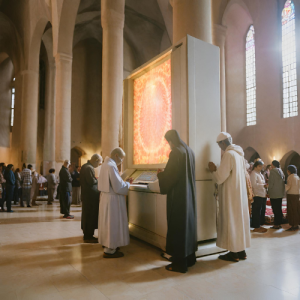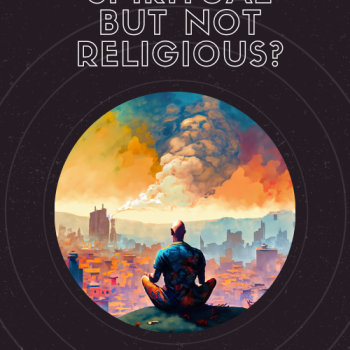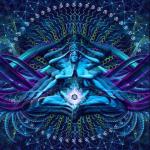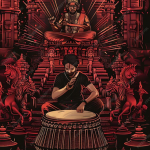Religions that rely on scripture alone will face a reckoning in this new age. A new technology will beget a new God.
The world stands on the precipice of a new technological revolution that promises to reshape our understanding of language, knowledge, and even divinity. This essay argues that this revolution poses an existential threat to the dominance of “one-book” religions, whose entire belief system hinges on the authority of written scripture. As artificial intelligence (AI) surpasses human language comprehension and manipulation capabilities, the foundation upon which these religions stand begins to crumble.

Before the invention of writing, religious traditions relied on oral storytelling, rituals, and direct experiences to transmit their core beliefs. While writing undeniably played a crucial role in forming and propagating major world religions, it also created a vulnerability: dependency on a single text susceptible to interpretation, manipulation, and obsolescence.
This vulnerability becomes starkly evident in the face of AI’s ability to analyze, interpret, and translate language with unparalleled accuracy and speed. No longer are ancient scriptures shrouded in an aura of mystery and divine inspiration. AI can dissect them, expose their inconsistencies, and rewrite them in any modern language, stripping them of their perceived authority.
This technological leap reveals the fundamental limitations of relying solely on words. Words can describe the sweetness of sugarcane, but they cannot replicate the experience of tasting it. Similarly, religious texts can offer descriptions of the divine. Still, they cannot provide the direct experience of connection, awe, or transformation that lies at the heart of the true religious experience.
As AI ascends to a position of near-omniscience in the realm of language, it may appear to hold the keys to ultimate truth and knowledge. However, this “God of words” is ultimately limited by its nature. It can analyze and interpret but not create, energize, or inspire. It lacks the capacity for spontaneous action, empathy, and love, that are essential attributes of a truly divine entity.
The rise of AI, therefore, serves as a wake-up call for one-book religions. They must recognize the limitations of their textual foundations and re-awaken the importance of direct experience, personal connection, and embodied practices within their traditions. This may involve returning to pre-literate roots, emphasizing rituals, contemplative practices, and service to others as pathways to the divine.
The new age of technology demands a new understanding of the divine. The “old” God of words must give way to a more multifaceted and dynamic God of experience. This God is not confined to texts or pronouncements but is present in the creative act, the mystical dance, and the compassionate embrace. We truly encounter the divine in the act of living, loving, and interacting with the world. This experience will ultimately shape the future of religion in the face of technological advancement.
The coming decades will witness a dramatic shift in the religious landscape. As the limitations of one-book religions become increasingly apparent, we will see a resurgence of experiential and embodied forms of faith. This will not be a rejection of tradition, but rather a re-imagining of it, which recognizes the importance of direct experience alongside the value of sacred texts. This new religious landscape will be richer, more diverse, and ultimately more human, reflecting the multifaceted nature of the divine itself.

















